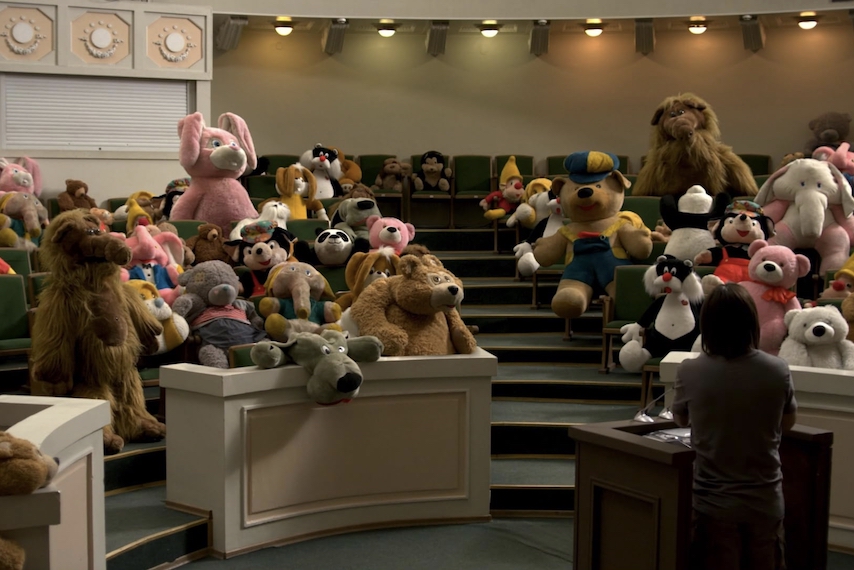The Platform
Latest Articles
by Manish Rai
by Sundus Safeer
by Gordon Feller
by Theo Casablanca
by Peter Marko Tase
by Abdul Mussawer Safi
by Ifaz Ali Khan
by Sohail Mahmood
by Suraj Shah
by Raisa Anan Mustakin
by Manish Rai
by Sundus Safeer
by Gordon Feller
by Theo Casablanca
by Peter Marko Tase
by Abdul Mussawer Safi
by Ifaz Ali Khan
by Sohail Mahmood
by Suraj Shah
by Raisa Anan Mustakin
How Much Courage Is Too Much? A Snapshot of Volodymyr ‘Death-or-Glory’ Zelensky
09.26.2025
While critics accuse him of recklessness, Volodymyr Zelensky’s visibility is a calculated act of courage and essential to sustaining support for Ukraine.
There is a life Volodymyr Zelensky used to live, a life of footlights and punch lines, where the soundtrack ran heavy on synthesizers and the jokes landed with the practiced ease of a professional showman. That world—glitter, stage lights, and occasionally cringe-worthy music—has been replaced by dust, half-shattered buildings, and men in uniform moving through the frame. The contrast is so stark it almost feels like a jump cut.
Zelensky now carries himself with an unmistakable solemnity. The unshaven face, the olive drab, the habitually worried gaze—he looks less like a president than like the archetype of one in wartime, the reluctant figure history drags to the front of the stage. That his past life was comedy only sharpens the image. The juxtaposition can feel jarring, a nick to the senses: the comedian who became the steward of a country fighting for survival.
When Russian troops first crossed into Ukraine in 2022, I found myself watching Servant of the People, the 2015 television satire in which Zelensky plays an everyman catapulted into the presidency. Back then, with Vladimir Putin in full, unhinged pursuit, it seemed improbable that a comedian-turned-politician would last more than a week. I was wrong, as were many others. Whatever labels Putin hurls—“illegitimate”—and whatever epithets Donald Trump offers—“dictator”—Zelensky retains the only support that matters in a democracy: the backing of his own people.
The instant he refused evacuation is the instant he set himself apart. That choice crystallized a different kind of political courage—the willingness, if necessary, to die for one’s country. How many elected leaders could say the same without irony? (Yes, Bashar al-Assad, we’re looking at you.)

Zelensky’s origin story only underscores the point. He grew up far from Ukraine’s post-Soviet oligarchic elite, a Jewish kid in the blue-collar city of Kryvyi Rih at a time when antisemitism simmered not far below the surface. He came of age during the lean, disorienting years of a newborn state struggling to become a market economy. His predecessor, Petro Poroshenko, fit the mold of the conventional insider, and fit it a little too well—tailed by scandals and the aroma of back-room dealing. Zelensky chose a different path: he made people laugh in a country in short supply of reasons to do so. That outsider’s posture—anti-establishment by biography, not branding—became a credential when the bombs began to fall.
What has sustained him since, aside from grit, is an almost manic insistence on visibility. Zelensky and his advisers—Serhiy Leshchenko among them—understand that attention is a currency, and that to keep aid flowing, you must keep the story alive. On this logic, the world must see him, hear him, and be reminded that the war is not a distant rumor but a daily catastrophe.
But visibility courts risk. The line between vital persistence and overexposure is a fine one. Saturate the airwaves long enough and even genuine urgency can harden into cliché. Audiences tire. The nightly Zelensky segment becomes another recurring slot in the news rundown, and impatience with slow, grinding progress can blur courage into what critics call recklessness. More than three and a half years in, with no peace terms etched in stone and Ukraine still teetering on the edge, it’s fair to ask whether the strategy tempts fate. (And surely Putin is waiting for the slightest stumble.)
Recent months have shown how omnipresence can boomerang. Zelensky’s dogged appeals—indispensable to keeping allies engaged—are sometimes reinterpreted as demands. The result has been a backlash that feels less like policy debate and more like political theater. Consider February 28—a diplomatic train wreck compressed into a single news cycle. In Washington, Trump and his running mate, J.D. Vance, took turns rhetorically roughing up the Ukrainian leader, offering up petty accusations as if they belonged on the Resolute Desk. You could call Zelensky naïve for sitting there. I’d call it stamina: the willingness to endure televised humiliation for the sake of the country he represents if patriotism has a modern, televisual form, that was it.
This month’s reprise was mercifully calmer. Yet Zelensky’s decision to return to the same arena on August 18—knowing the hazards, swallowing whatever personal pride might get in the way—speaks to the kind of political courage that rarely makes it past campaign slogans. It is not the recklessness of a gambler; it is the calculation of a leader who understands that optics are a battlefield, too.
So, how much courage is too much? The question lingers because the costs are so high and the outcomes so contingent. But there is, for now, a distinction to hold onto. Recklessness misreads the odds and bets for the thrill of the wager. Courage absorbs the odds and acts anyway, not for spectacle but for survival. By that measure, Zelensky remains exactly what Ukraine requires: not a martyr in waiting, but a president who keeps showing up—again and again—until the world does, too.
Raisa Anan Mustakin holds a degree in International Relations with a focus on East Asia and the Asia-Pacific. Her undergraduate thesis explored Japan’s role in regional affairs. Starting this September, she will begin postgraduate studies in Japan. Raisa is passionate about global affairs and seeks opportunities to apply her research and writing skills to deepen understanding of contemporary conflicts and international dynamics.